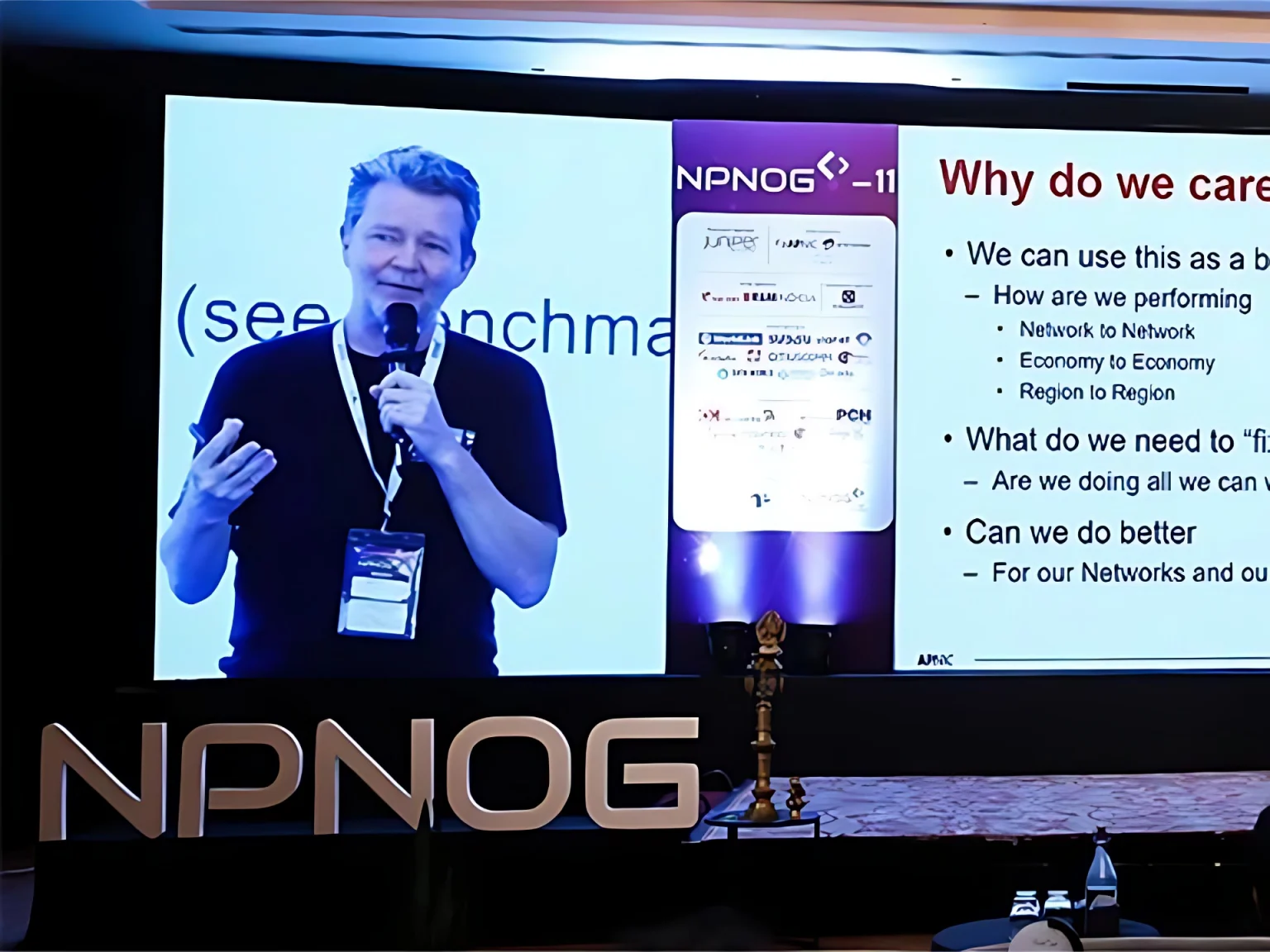- Workshops and talks at npNOG 11 focused on routing, DNS, and network automation.
- APNIC shared global Internet data and led training, though practical outcomes in Nepal are uncertain.
What happened: npNOG 11 brings hands-on training to Kathmandu
The 11th Nepal Network Operators Group event, known as npNOG 11, was held in Kathmandu from 15 to 20 June 2025. It brought together 192 participants for five days. The programme included four days of workshops and a final day of conference talks. The sessions covered topics such as Internet routing, DNS, network security, and automation. Speakers included both local and regional experts, and many participants came from Internet service providers, academic institutions, and technical communities.
APNIC supported the event and was active throughout the week. Dave Phelan, from APNIC, gave a talk called The Internet – By the numbers. He shared data on IPv6 adoption, RPKI deployment, and Internet security across the world, in Asia, and in Nepal. These numbers gave participants a look at how Nepal compares with other countries. Phelan also joined a network automation workshop. This workshop lasted four days and included 18 participants. He taught alongside APNIC trainer Rupesh Basnet and local trainer Sailesh Shrestha. The session gave hands-on practice in automating basic network tasks.
Also read: APNIC at INNOG 8 and IISPC 2025
Also read: Registration opens for APNIC 60 in Da Nang this September
Why it’s important
Events like npNOG are meant to help improve the skills of local network engineers. They bring in experts to share knowledge and provide hands-on training. This can be useful in a country like Nepal, where Internet infrastructure is still developing. The workshops at npNOG 11 covered topics that are important for making networks more stable and secure. But it is not clear if this training will lead to change in practice. Nepal has low adoption of IPv6 and RPKI. These were highlighted during the event, but there are few signs of large-scale deployment.
The session on network automation also raised questions. Automation can help reduce human error and make systems work more efficiently. But in Nepal, many network operators still work with limited tools and budgets. They may not have the support or resources to use what they learn in workshops. Without follow-up or changes at the organisational level, the benefits may stay limited. Events like npNOG help raise awareness, but it is hard to say if they bring lasting improvements.

